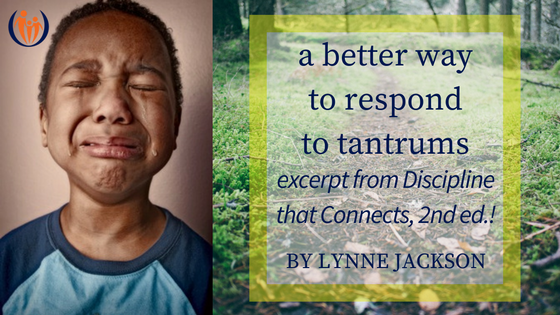
A Better Way to Respond to Tantrums
Whether you call them tantrums, meltdowns, or “big feelings” – we all know that most kids (and therefore most parents) struggle at times when emotions overtake the ability to think and reason well. When it comes to dealing with kids’ tantrums, parents get pretty desperate. Unfortunately, even when equipped with the best tips and online advice, they often find themselves stuck in a familiar pattern of explosive interactions with their kids that goes something like this: The child gets upset and throws a tantrum, then the parent gets upset and angry. Suddenly, everyone is throwing their own version of a tantrum! Can you identify with this struggle?
A First Step: Self-Introspection
We believe that the best first step when faced with a child’s tantrum is for the parent to ask themselves: What is going on with me? How do I feel right now in the face of this meltdown? This first pause is important because, without taking a moment to get this insight, it’s likely I’ll inadvertently send messages to my child like: “I don’t care at all what you are upset about,” “You are in control of my emotions,” or “You actually run this house with your tantrums and that makes me angry!” These messages perpetuate the cycle as kids feel rejected–yet powerful over others.
How do I respond to my child’s tantrums? What does it tell me?
When parents struggle to have helpful responses to their child’s tantrums, their engagement with their child usually falls into one of three categories:
- Condescend – Sometimes parents mock or imitate their kids’ outburst for their over-the-top emotional display, or simply invalidate their big feelings by saying, “This is not that big a deal.” Other times the condescension is internal, as in unspoken judgments about the intensity of my kid’s explosion thinking, “What a trainwreck!”
- Control – “Calm down” or “Stop this!” are usually a parent’s way to compensate for feeling stressed, out of control, or even ashamed of their child’s behavior. Internal thoughts might be similar to, “This is ridiculous and needs to stop.” “This kid is just trying to get my goat, and run this family.”
- Cower – Other parents walk on eggshells, waiting for the next unexpected event to trigger a meltdown, and tend to try to fix it or placate the child as quickly as possible. Thoughts might be, “Oh, no, here we go again. I can’t take this anymore.” Their anxiety adds to their child’s anxiety.
Walking in My Child’s Shoes
It is really tough not to respond in one of the above ways. But let’s step into the shoes of our children for a minute. Picture yourself having a little meltdown of your own after a really rough day with the kids. I (Lynne) can remember the night I went out in the garage and screamed at the top of my lungs. I hurt my voice. So I kicked a tire instead… and hurt my toe. Jim’s parenting tantrum started with a panic attack and ended with him throwing rocks as hard as he could at a sign. How about yours? Almost all parents get to that crazy place, just like their kids. To build some insight, let’s imagine how you’d feel if a spouse or close friend had one of these responses to your outburst:
- Condescend -“Seriously, that’s quite a rant. Don’t have a heart attack! They’re just being kids.”
- Control – “Just settle down and get a grip!”
- Cower – “Umm, I should go check emails.” – Your big emotions stress out your spouse/friend as they quickly disappear or change the subject.
Helpful Perspective for Tantrums
What we need is compassion – someone to listen and be peaceful, or someone to empathize. So how can we prepare our hearts to respond to a child’s meltdown with confident compassion instead of condescension, control, or cowering?
Helpful parental self-talk (internal processing) as your child ramps up can include thinking:
- We’ll get through this. This too shall pass.
- I’m not a bad parent. My child is not a bad kid. We’re just having a hard time.
- I can handle this. Just take some deep breaths.
- My child needs help managing his intensity.
- God’s not fazed by this. Jesus is here and he loves us.
- (and our Jackson favorite) My child’s behavior is not my report card. Jesus is my report card.
Who Controls Who’s Emotions?
Because of the high emotionality of tantrums, sometimes this change in a parent’s thinking begins to drop the intensity of a child’s tantrum. Engage with a peaceful heart and your kids will naturally tend to mirror that. When a child realizes he’s not controlling your emotions, he’s freed to learn to control his own!
My Response:
- When my child becomes intense or emotional, do I tend to condescend, control, cower or have compassion?
- What belief might I embrace to move me toward the most helpful engagement with my upset child?
Download our FREE in-depth ebook Helping Kids With Anger. It will provide thoughtful insights and creative ideas to help your struggling child.






